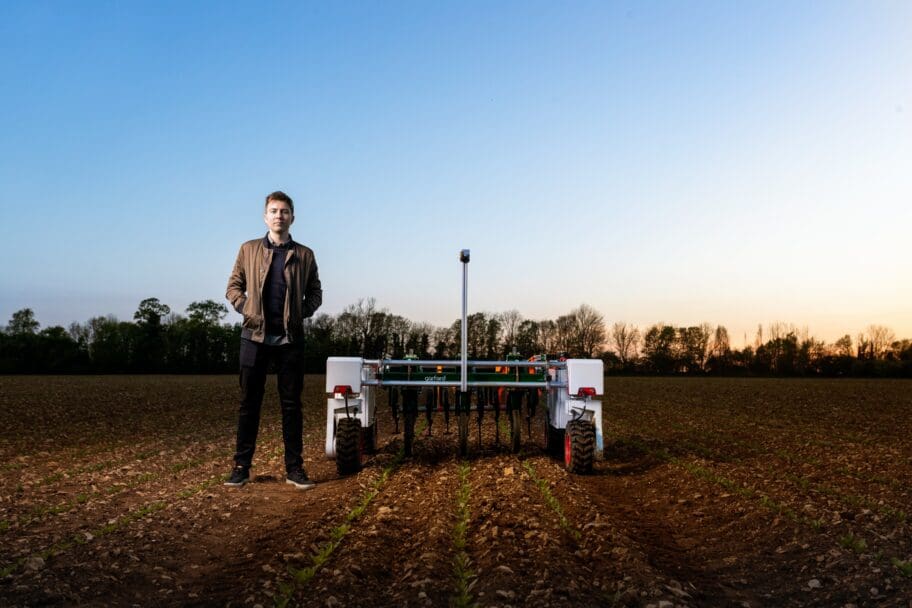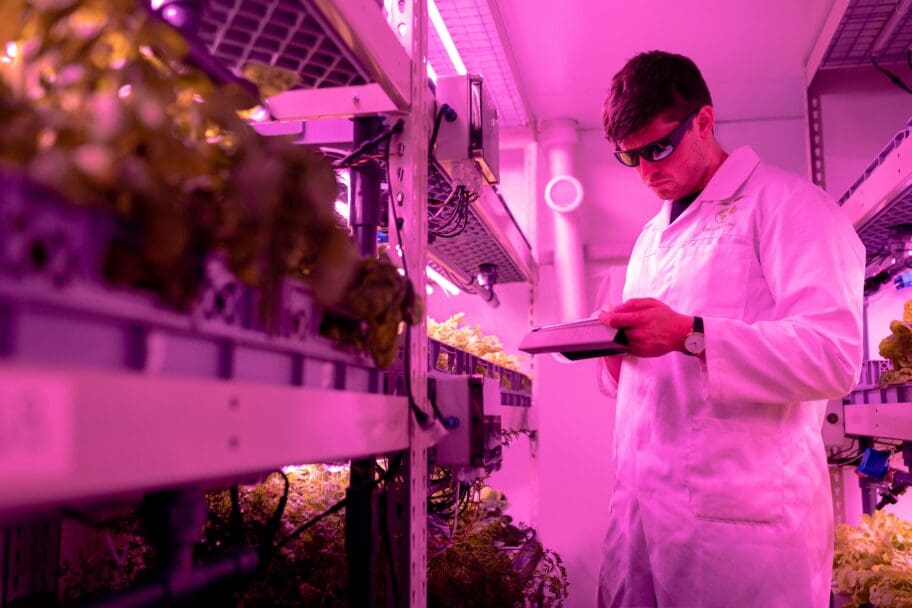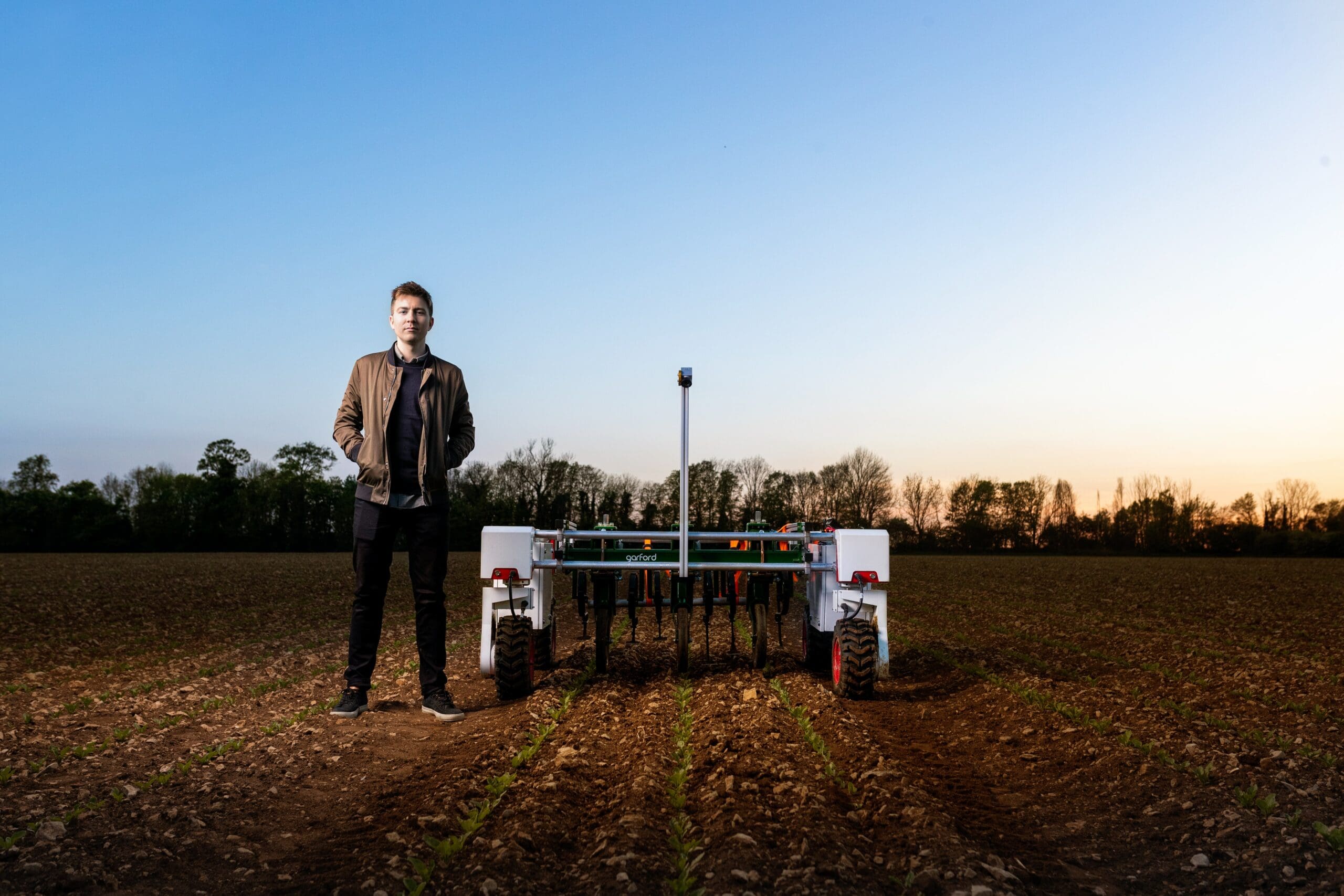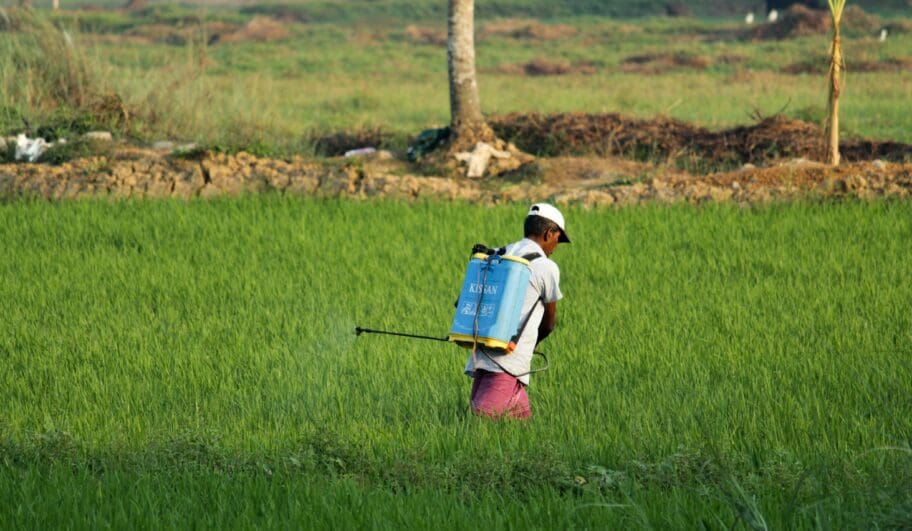The advent of artificial intelligence (AI) technology is revolutionizing traditional agricultural practices through smart farming. This includes enhanced farm management and the use of computer vision for maintaining healthy crops. Artificial intelligence algorithms, trained with extensive data such as ground images and environmental conditions, are enabling a shift towards more efficient agricultural technology and sustainable farming methods. This application of machine learning and computer vision is revolutionizing the industry. These smart farming systems, a form of agricultural technology, can analyze soil levels, identify crops requiring attention, and even distinguish wheat types using computer vision and image recognition capabilities. The integration of AI in agriculture holds immense potential to increase crops production while minimizing the environmental impact of traditional farming. However, it also raises critical questions about its implications for farmers engaging in traditional farming, the broader agricultural sector, and the impact on crops and food production with the integration of technology.
Challenges of Implementing AI in Farming
Cost and Technical Complexities
Farm management has always been a challenge. With the advent of artificial intelligence and machine learning in agricultural tasks, farmers are now facing new challenges related to crops. One significant issue is the high costs associated with implementing AI technology and computer vision into traditional agricultural methods for crop management. These costs encompass not only the purchasing of advanced technology and tools for farm management but also the maintenance of such software.
Technical complexities pose another barrier to adoption. Many farmers lack the agricultural skills needed to operate these sophisticated machine-learning technology tools for crops, leading to costly errors.
Data Privacy Concerns
The use of machine learning and computer vision in agricultural technology, often referred to as AI farming, also raises data privacy issues. Farms, a vital part of the agricultural sector, generate massive amounts of data through machine learning and computer vision technology that need protection from misuse or theft. The implementation of robust security measures in technology like computer vision and machine learning adds to the overall cost and complexity of farm management.
Farmer Education and Training
To overcome these limitations, there's a need for farmer education and training on new agricultural technologies like machine learning and computer vision. Farmers must understand:
-
The benefits of using AI
-
How to integrate it into their existing farming methods
-
How to manage potential risks in agricultural technology, such as data breaches in machine learning or algorithm errors in computer vision caused by climate change or labor shortages
By addressing these challenges, we can help ensure that all farmers have access to the agricultural solutions offered by AI, including machine learning and computer vision technology.
AI's Role in Livestock Health Monitoring
AI plays an important role in livestock health monitoring. It's like the unseen ranch hand, always harnessing technology for agricultural purposes, on the lookout for signs of disease via machine learning and maintaining quality control through computer vision.
Machine Learning for Disease Detection
Machine learning algorithms are at the heart of AI's capabilities in agricultural computer vision. These machine learning algorithms sift through vast amounts of agricultural data to detect patterns that might indicate a problem, utilizing computer vision. For instance:
-
Unusual behavior in cattle, detected through agricultural machine learning and computer vision, can be an early warning sign of illness.
-
Changes in soil health, potentially identified through computer vision, may affect the quality of grazing.
AI-powered surveillance systems, utilizing computer vision, make these detections possible, enabling early intervention and preventing widespread outbreaks.
Automated Animal Welfare
Computer vision in Computer vision in automated monitoring is another key aspect of AI's role in livestock management. Surveillance cameras and sensors utilizing computer vision track animal activities 24/7, ensuring their welfare is never compromised. Some benefits include:
-
Constant surveillance reduces stress caused by human interference.
-
Traceability improves as each animal's activities are recorded.
These computer vision automated systems provide a level of security that manual monitoring simply cannot match.
Predictive Analytics for Management Decisions
Computer vision and predictive analytics both play an important role in livestock management decisions. By analyzing past data through computer vision, AI can forecast future outcomes such as potential disease outbreaks or productivity levels. This allows farmers to utilize computer vision to plan ahead and make informed decisions about their livestock operations.
Yield Mapping and Predictive Analytics Applications
Precision Agriculture
Precision agriculture utilizes yield mapping for efficient resource allocation. Yield maps, created using big data, supervised machine learning algorithms, and computer vision, provide accurate data on crop yields. These maps enable farmers to allocate resources more efficiently, improving their operations and supply chains.
-
Yield Mapping Software Providers: Various providers offer software for yield mapping. These applications use big data to create detailed maps of crop yields.
-
Benefits of Yield Mapping: Efficient resource allocation, improved supply chain operations, accurate yield rates prediction.
Proactive Crop Management
Predictive analytics plays a vital role in proactive crop management strategies. By analyzing past and current data, predictive analytics allows farmers to forecast future yields accurately. This enables them to make informed decisions about their farming practices.
-
Supervised Machine Learning Algorithms: These algorithms analyze past yield data to predict future yields.
-
Proactive Crop Management Benefits: Accurate forecasting of yields, informed decision making, improved planning.
Data-driven Harvest Planning
Leveraging data-driven insights can significantly improve harvest planning. With the use of predictive analytics and yield mapping applications, farmers can plan their harvests based on accurate predictions of yields.
-
Data Analysis for Harvest Planning: Analyzing yield data allows farmers to plan their harvests efficiently.
-
Harvest Planning Benefits: Improved efficiency in harvesting operations, minimized waste in supply chains.

Revolutionizing Harvesting with Intelligent Pesticide Application
Smart Pesticides and Environment
Precision agriculture is harnessing the power of AI in agriculture to reduce environmental impact. It's all about smart farming, where technologies are used for intelligent pesticide application. The use of these new technologies in agricultural technology is a game-changer.
-
Drones are used to apply pesticides only where needed
-
Robotics assist in weeding and other tasks, reducing the need for broad-spectrum pesticides
-
Machine vision technologies allow for targeted pest control measures
This approach not only protects our environment but also boosts crop yield by ensuring pests don't damage crops.
Efficiency Gains from Automation
Automation plays a vital role in enhancing productivity. For instance:
-
Automated drones can cover large fields quickly, applying fertilizers and pesticides precisely.
-
Robotic systems can monitor crop growth continuously, detecting pests early on.
With automated processes, farmers can focus more on strategic decisions rather than manual labor.
The combination of AI and precision farming techniques is paving the way for sustainable farming practices that optimize resource usage while maximizing crop yield.
AI’s Impact on Irrigation Systems Optimization
Intelligent Irrigation Systems
AI plays a significant role in optimizing irrigation systems. With crop irrigation becoming more technologically advanced, intelligent systems are now capable of maximizing water efficiency. They do this by:
-
Monitoring real-time soil moisture levels
-
Adjusting watering schedules based on soil conditions
-
Predicting weather conditions to optimize water use
This technology allows farmers to make informed decisions about when and how much to irrigate their crops.
Real-Time Soil Moisture Monitoring
One of the main features of these intelligent systems is their ability to monitor real-time soil moisture. This data informs the system when the crops need water and how much they require. It eliminates guesswork and ensures that each plant gets exactly what it needs.
Predictive Weather Analysis
Another key feature is predictive weather analysis. The irrigation system can forecast weather conditions using AI algorithms, preventing unnecessary watering before rainfall or adjusting schedules during dry periods. This reduces water waste significantly.
Water Waste Reduction
AI in agriculture also helps detect leaks in the system early, further reducing water waste. By predicting potential issues, farmers can address them proactively, ensuring optimal use of resources.
To sum up, AI's impact on irrigation systems optimization includes:
-
Maximizing water efficiency through intelligent irrigation
-
Informing watering schedules with real-time soil moisture monitoring
-
Reducing water waste via predictive weather analysis and leak detection.
The integration of AI into agriculture signifies a giant leap towards sustainable farming practices.
The Future of AI in Agriculture Industry
Robotics and Autonomous Machines
Agricultural robotics promise a new era in the agricultural industry. They have the potential to automate tasks such as planting, harvesting, and monitoring crop health. This could lead to increased crop yields and efficiency.
-
Robotic harvesters: Capable of picking fruits without damaging them
-
Drones: Useful for surveying large areas quickly and accurately
-
Autonomous tractors: Can perform tasks like plowing, seeding, and spraying with minimal human intervention
Precision Farming Techniques
Precision farming techniques can increase sustainability in the agricultural sector. These techniques use data from various sources (e.g., weather forecasts, soil conditions) to make accurate decisions about when and where to plant crops.
-
Variable rate technology: Applies inputs (like seeds or fertilizers) at varying rates across a field based on data collected.
-
GPS-based soil sampling: Helps farmers understand field variability and manage it effectively.
-
Yield monitoring: Allows farmers to track yield variations within fields over time.
Data-driven Decision Making
Data-driven decision making can enhance food security by predicting potential issues before they become problems. It relies on big data analytics - analyzing vast amounts of data from various sources - to make informed decisions that improve food production.
-
Predictive analytics: Used for forecasting future weather patterns or pest infestations.
-
Prescriptive analytics: Provides recommendations on how best to address specific issues like disease outbreaks.
The integration of AI in agriculture is poised to revolutionize the industry, offering solutions that increase efficiency while addressing global challenges like population growth and climate change.

Embracing the Future of Farming
The transformative power of AI is undeniably reshaping the agricultural landscape. From tackling implementation challenges, monitoring livestock health, enhancing yield mapping and predictive analytics, to revolutionizing harvesting and optimizing irrigation systems—AI has proven its pivotal role. As we delve into the future, it's evident that AI's influence in the agriculture industry will continue to grow exponentially.
It’s an exciting time for both technology enthusiasts and farming communities as they witness the dawn of a new era in agriculture. The potential benefits are immense and with further research and widespread adoption, AI could significantly address global food security issues while promoting sustainable farming practices. Now is the time to embrace this change and leverage AI’s capabilities for a more productive, efficient, and sustainable future in agriculture.
FAQs
What are some ways AI can improve livestock health monitoring?
AI can significantly enhance livestock health monitoring through real-time data analysis. It can detect early signs of disease or distress in animals by analyzing behavioral patterns, thereby enabling timely interventions.
How does AI contribute to yield mapping and predictive analytics?
AI uses machine learning algorithms to analyze past crop yields along with various environmental factors. This helps predict future yields accurately which aids farmers in making informed decisions about crop management.
Can AI optimize irrigation systems?
Absolutely! With advanced sensors and machine learning algorithms, AI can monitor soil moisture levels accurately and adjust irrigation schedules accordingly. This ensures optimal water usage while boosting crop growth.
How is intelligent pesticide application revolutionizing harvesting?
Intelligent pesticide application using drones equipped with AI allows for precise pesticide spraying only where needed. This not only reduces costs but also minimizes environmental impact.
What does the future hold for AI in agriculture?
The future of AI in agriculture looks promising with continuous advancements paving way for smarter farming solutions—from autonomous tractors to high-tech greenhouses—all geared towards increasing productivity while ensuring sustainability.

Article by
Titus Mulquiney
Hi, I'm Titus, an AI fanatic, automation expert, application designer and founder of Octavius AI. My mission is to help people like you automate your business to save costs and supercharge business growth!

